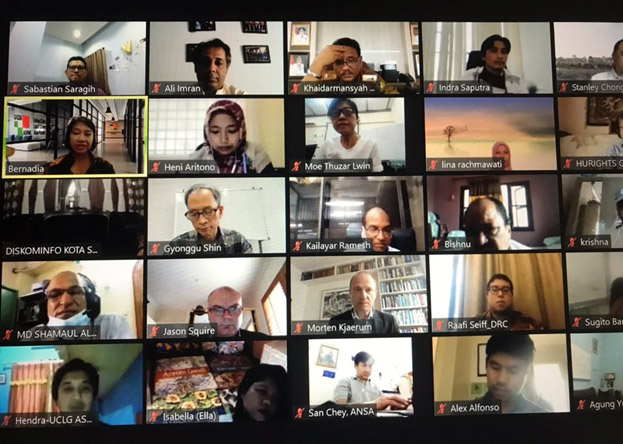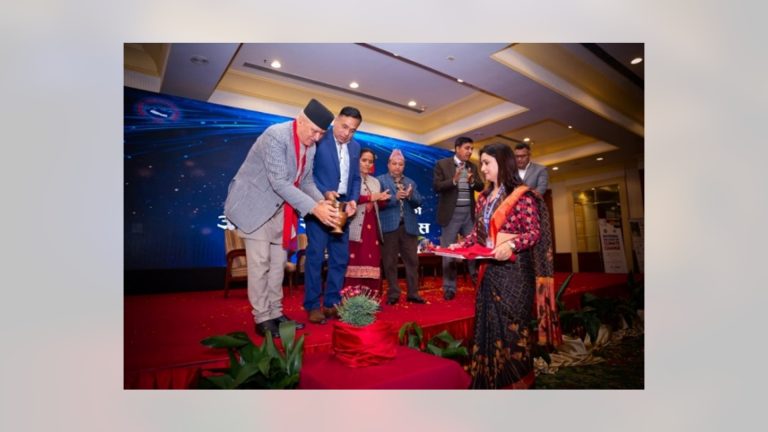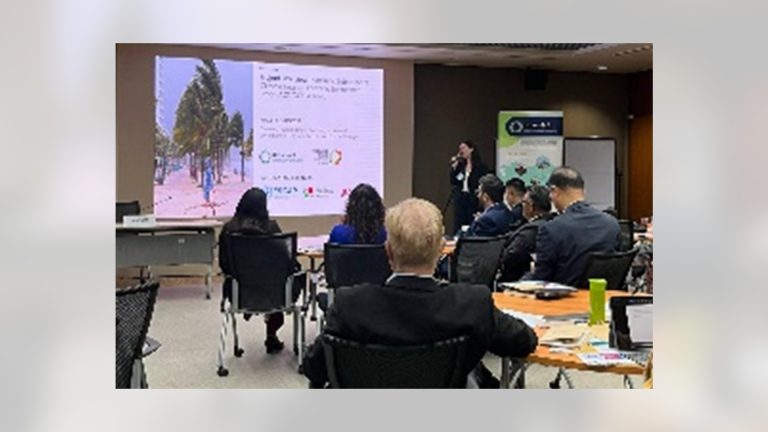18 May 2020 | GWANGJU – ASSISTING cities and local governments to develop sustainably is at the heart of UCLG ASPAC’s work. Localising the Sustainable Development Goals (SDGs) has become one of the focus areas since its ratification in 2015. UCLG ASPAC has shown tremendous support to local governments to achieve the goals, such as through various capacity building activities, project development, and partnerships. Recognising the challenges that cities face in meeting the 2030 deadline, UCLG ASPAC introduces various approaches that cities can utilise. Within this understanding, UCLG ASPAC signed a Memorandum of Understanding (MoU) to collaborate with the Raoul Wallenberg Institute (RWI) and Gwangju Metropolitan City Government back in 2019, which aims to support local governments in localising SDGs with human rights approach. The launch of 2nd Blended Learning Course (BLC) addressing human right and the SDGs that was conducted virtually on 18 May 2020 was part of the implementation of the joint-commitment.
The launch was attended by more than 80 participants from local governments, civil society organisations, and the academe. Representing the RWI was Mr. Jason Squire, RWI Director of Regional Asia Office. Dr. Bernadia Irawati Tjandradewi, Secretary-General of UCLG ASPAC in her opening remarks highlighted that ‘No One Left Behind’ illustrated the main spirit of human rights. She invited the participants to observe a moment of silent in honour of those who sacrificed their lives during the uprising movement in Gwangju on the same date, 18 May, 40 years ago.
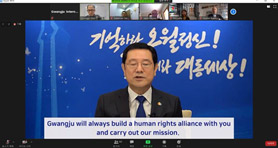 Through a video message, Mayor Lee Yong-seop of Gwangju discussed the plans of Gwangju City in developing the “Gwangju Human Rights Agenda 2030” and launching the “Gwangju International Human Rights Education Centre.”
Through a video message, Mayor Lee Yong-seop of Gwangju discussed the plans of Gwangju City in developing the “Gwangju Human Rights Agenda 2030” and launching the “Gwangju International Human Rights Education Centre.”
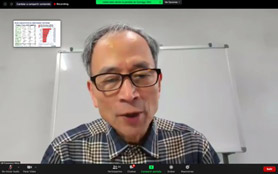 Prof. Gyonggu Shin, Director at Gwangju International Center, elaborated on the Korean Strategy in handling the COVID-19 outbreak. Korea has provided protection of patients and assistance to citizens with a human rights-based approach (rights to live, political and social rights). According to Prof. Gyonggu Shin, it has implications to the future that promoting the human rights-based approach is in line with promoting a more inclusive economy, democracy, also building inclusive society, particularly for vulnerable groups, and protecting both individual privacy and public health. He also mentioned that the Korean Government treated everybody with no discrimination in terms of rights to treatment.
Prof. Gyonggu Shin, Director at Gwangju International Center, elaborated on the Korean Strategy in handling the COVID-19 outbreak. Korea has provided protection of patients and assistance to citizens with a human rights-based approach (rights to live, political and social rights). According to Prof. Gyonggu Shin, it has implications to the future that promoting the human rights-based approach is in line with promoting a more inclusive economy, democracy, also building inclusive society, particularly for vulnerable groups, and protecting both individual privacy and public health. He also mentioned that the Korean Government treated everybody with no discrimination in terms of rights to treatment.
Prof. Morten Kjaerum, Director of RWI of Human Rights and Humanitarian Law in Sweden, said that human rights have a big impact on many aspects in dealing with COVID-19. The state has to respect, protect, and fulfil the rights of its citizens; mainly rights to life and rights to health. Local authorities need to find a way to reach out to more vulnerable society/minorities. They need to ensure that they have good communication with society. He mentioned that there are two key takeaways: 1) wherever severe restriction of human rights is introduced, measures need to be addressed and tested if it is proportional and necessary, constantly, regularly; and 2) by using the human rights-based approach, it is easier to reach out to the vulnerable ones, and to identify that access is given to everyone so that no one is left behind.
In relation to challenges faced by cities, Mayor of Salatiga (Indonesia) and Makati (Philippines) shared their updated challenge due to COVID-19. Mayor Yulianto of Salatiga highlighted that his city has formed a task force at the city level and sub-district level. Mayor Mar-len Abigail S. Binay of Makati City shared that Makati City is a financial centre city and leading innovator, but some businesses are temporarily closed down due to the pandemic which caused unemployment across many sectors. According to her, three important principles to focus on are public participation, non-discrimination, and accountability.
At the end of the session, Dr. Bernadia Irawati Tjandradewi invited participants to share their opinions through Mentimeter (www.menti.com). Result showed that most of the respondents are interested to promote human rights-based approach in SDGs localisation in their cities. They understand the linkage between this approach with SDGs localisation. Further, they also can learn from other cities from best practices shared.
This 2nd BLC is aimed to introduce concepts, experiences, and networks on localising human rights in the SDGs process to member cities of UCLG ASPAC. This course will combine online and face-to-face approach. Participants will be identified to enrich discussions at selected sessions in the annual event of the world human rights cities forum. The output is to have an individual project where participants have to put theories into practice and to present them at the forum in Gwangju.








